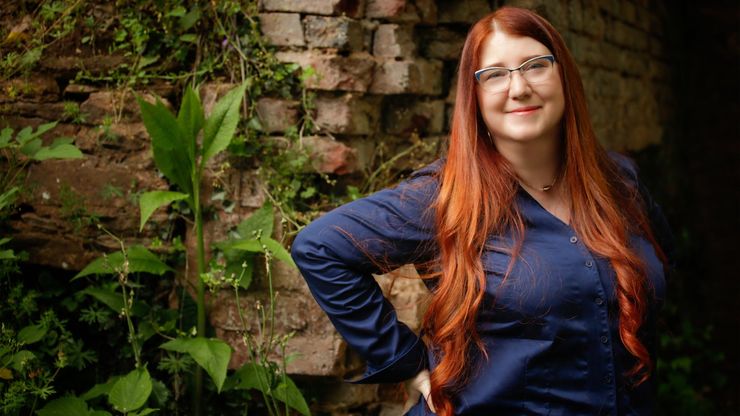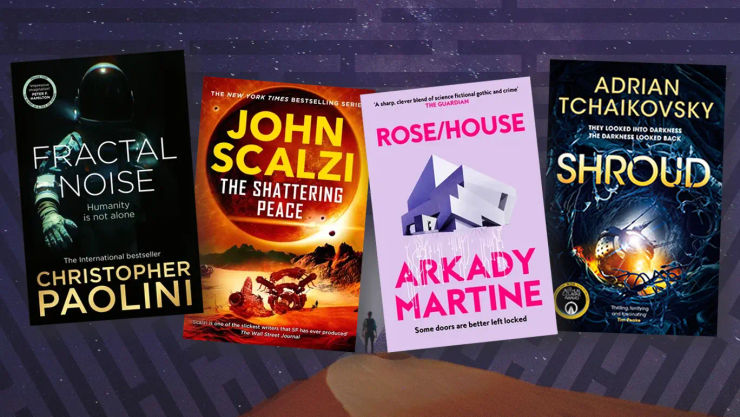Why nerds should write fantasy, a personal perspective
Author Jenn Lyons describes the unique satisfaction of building a fantasy world, and the gratification it brings to her inner nerd.

A Chorus of Dragons author Jenn Lyons has come a long way, from weeping over her nerdiness as a child to celebrating it. Nerdish tendencies have allowed Lyons to free her imagination in the creation of complex worlds. From the ancient Greeks to Dungeons & Dragons to occult belief systems to creating her own work, worldbuilding is her fascination and her joy.
If you read fantasy, you’ve probably run across this little thing I like to call ‘symbolism’. Okay, fine, remove the word probably. From Odysseus' bow which none of Penelope's suitors could string (showing that they were unworthy of both her and the title of king) to the purity of unicorns, fantasy has always been a hotbed of symbols and hidden meanings. (Odysseus’ bow was possibly larger than strictly necessary – boy, those ancient Greeks sure did misunderstand what a rhinoceros was.)
My work is no exception. One of the joys of creating your own world is that you get to make the rules, and that includes sliding symbols into your work for the pure darned fun of it. Sometimes that symbolism isn’t subtle (D’Mon literally means ��‘Blue House’ and the hospitals run by that family are called Blue Houses so you can see how clever that was) but at other times…well.
With A Chorus of Dragons, the symbolism goes right down to the foundations. When I originally sat down to write the first book, I’d decided that I wanted four main characters, who would be based on tarot card suits: swords, cups, pentacles and rods. Each was themed to an element as well, so swords would be air-themed, cups linked to water, pentacles to earth, rods to fire. (I’m hardly the first person to do something like this – see J.K. Rowling). From here, it expanded out, like a beautiful fractal: four races (also elementally linked), two gods representing each race, the number eight repeated infinitely.
Understand something: I’m a bit of a nerd. A huge nerd, a colossal nerd. What was once a cause of tears when I was a child has in later years been embraced. Reclaimed, if you will. I’m a nerd and proud. Keep this in mind for what I’m about to say.
‘What was once a cause of tears when I was a child has in later years been embraced. Reclaimed, if you will. I’m a nerd and proud.’
Because ‘nerd’ is a symbol (as all words are by definition) whose meaning has changed dramatically both historically and contextually. To some it represents an unwashed basement dweller who spends all their time obsessing over ‘irrelevant’ trivia (according to someone’s definition of irrelevance). To others, it represents anyone whose love of a particular topic will drive them to dive deep for no other reason than the pure joy of learning or creating or wallowing in artistic expression like Smaug on a pile of gold coins.
In my particular case, my nerdery led me to a passionate love of two different kinds of magic – the fantasy worlds of table-top roleplaying, starting with Dungeons & Dragons, but swiftly moving on to everything I could get my hands on – and the very real occult beliefs practiced by millions around the world. Ironically, when I was a child, a huge scare led a whole lot of people to believe that the first led to the second, a period of (largely American, I think) history referred to as the Satanic Panic. It was this hysteria – not D&D itself – which piqued my interest in religion, mysticism and the highly subjective line dividing the two. I’ve never lost this interest. What people believe and why they believe it continues to be a subject of endless fascination.
While Dungeons & Dragons (not a primer for any real-world occult systems, I assure you) has instilled in me a deep love of creating rules, my lovingly collected set of historical occult practices shaped how those rules are applied. Sigils, sympathetic magic, tarot, the methods of spellcasting – all the basic underpinnings for magical practices in my books find their inspiration in real world systems. (Note: I don’t recommend you try any of them at home. I guarantee you won’t find a real-world sigil that lets you breathe underwater, for example.)
And besides, making it my own means the rules are my own too, which I much prefer. Nerd that I am, I’m only too happy to craft entire religions, customs, ceremonies and so on. It’s fun.
That is one of the guilty secrets of fantasy writing I suppose, or at least my guilty secret. I keep hearing that worldbuilding and everything that goes with it is a chore – something one does dutifully, to the minimum effort required and not one iota more. But I don’t think I’m the only one out there who secretly (or not so secretly) world builds because we love to do so. Because we’re nerds.
And I, for one, am proud to wear that label.
If Jenn's words have left you inspired and on the hunt for your next read, discover our edit of the best fantasy books to add to your TBR pile.
The House of Always
by Jenn Lyons
The House of Always is the fourth book in Jenn Lyons’s epic fantasy series A Chorus of Dragons, which starts with The Ruin of Kings.
The Eight Immortals have catastrophically failed to stop Kihrin’s enemies, who are moving forward with their plans to free Vol Karoth, the King of Demons. Kihrin has his own ideas about how to fight back, but even if he’s willing to sacrifice everything for victory, the cost may prove too high for his allies.
Now they face a choice: can they save the world while saving Kihrin too? Or will they be forced to watch as he becomes the very evil they had all sworn to destroy?



